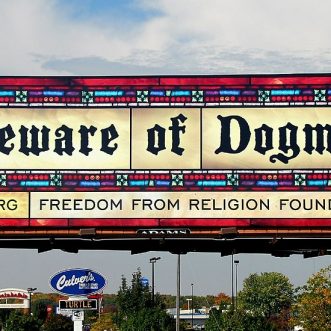
Getting out from under
No matter how light the burden, or what a joy it is to carry, it’s good to get out from under it once in a while.
I’m disappearing off for a holiday. Back on the 19th.
Take care.

No matter how light the burden, or what a joy it is to carry, it’s good to get out from under it once in a while.
I’m disappearing off for a holiday. Back on the 19th.
Take care.

What is management?
Here are a few answers, found on my Ecosia search this morning:
None of these definitions presuppose that ‘management’ can only be carried out by a few people, or even just one person. So why do we assume that hierarchy or even dictatorship is the natural shape of management?
Perhaps because this definition of management comes top of the search results:
I don’t know about you, but I prefer Harold Koontz’s version.
I am not a thing. I am a human being. I control myself, thank you very much.

Decades ago, my older brothers were given the job of breaking up concrete in the back garden so my dad could lay a new patio.
They did a morning’s work, had lunch and started again in the afternoon. After an hour or so, my mum thought “They’ve been at it a while, I better see if they need a cup of tea.”
Then walked into the breakfast room to find nothing but a cassette player running.
They’d carefully recorded themselves in the morning so they could bunk off in the afternoon.
Corporate Rebels shared a Bloomberg article today:
“More than two years after remote work and hybrid jobs became widespread, there’s still a stark divide over how it’s going: About 85% of managers worry they can’t tell if employees are getting enough done, while 87% of workers say their productivity is just fine.”
With this admonition from Microsoft: “Don’t Spy on Employees to Ensure They’re Working,“
This is the 21st century for goodness sake.
Have we not learned to measure results rather than “activity”?
I can’t help thinking it’s management that needs an overhaul.
Hint: If you’re a micro-business employer I can help you with that.

Dogma: a belief or set of beliefs that is accepted by the members of a group without being questioned or doubted.
As a boss, in a moment of frustration, you may feel that this is what you want. And if you lock all decision-making into your systems and processes, you’ll get it.
Dogma scales, but it doesn’t evolve, and it frequently gets subverted. If ‘computer says no‘ to often for my liking, I might just stop asking the computer.
If you want your business to outlast you and retain your vision, it’s better to create space for dissent, debate and experiment. After all, dissent, debate and experiments are where discovery originates.
Use your systems and processes to create a floor that defines the minimum experience. Guide your people with a small number of big principles. Then let them spread the word in their own way.
You never know, you might just found a new religion.

Not many people know this.
I’m an anarchist.
I believe in autonomy and self-determination. I don’t believe that anyone has the right to tell anyone else what to do – except in rare cases where doing so might save a person’s life.
I also believe in collaboration and co-operation – the getting together of autonomous individuals to achieve something much bigger than themselves.
To co-operate successfully, participants need to know what they have to do. They need to know when it has to be done. But that knowledge doesn’t have to come from someone telling them as they go. It can come from a shared ‘document’ everyone can access, whenever they need to.
That’s why I like the idea of a business as an orchestra.
Often, when people think of an orchestra, they focus on the conductor. But the conductor isn’t there to tell players what to do, they’re there to help them keep time, and to provide hints to aid this particular interpretation. It’s up to each player to choose how to get the right sound out of their instrument at the right time. What has to happen, when, is recorded by the composer in a score.
The conductor is a role, like a cellist or percussionist, not a position in a hierarchy. In fact it’s perfectly possible to run a succesful orchestra without a conductor – you simply get people to take turns.
What really pulls an orchestra together is the score – a map of the sound experience to be created for an audience.
The person behind the score is the composer. They’re the one whose legacy lasts longest, and scales furthest.
So if you’re an employer, and like me, you have a problem with being told what to do, consider rethinking your role.
How could you make yourself a conductor rather than a boss?
Or even better, how could you make yourself a composer?
Hint: talk to me about becoming a Disappearing Boss.

On the whole, I’m a pretty laid-back person.
But you know what really makes me angry?
Seeing amazing micro businesses die when their owner disappears. Whether that’s because they’ve sold up, gone off to do something else, or simply wound down and died.
All that innovation, all that care, all that value, wiped out. Wasted.
Unnecessarily.
It makes me really angry. And I’m on a mission to do something about it.
Because all it takes to avoid that waste is a decision to ‘disappear’ from your business earlier, on purpose, replacing yourself with a flexible, supportive framework that enables others to be ‘a boss’ instead of you.
The irony is that by doing this in plenty of time, you’ll start to enjoy running your business again. You might even want to grow it. But you won’t have to be there.
Help me on my mission.
If you know an amazing micro-business that deserves to last longer than it’s owner, tell me about them, put them in touch.
We need these amazing businesses to be around for longer.
They’re what makes our commercial life worth living.

This book, ‘Alchemy’ was recommended to me by the talented Andrea Horgan, (along with ‘Evolutionary Ideas‘) so of course I had to interrupt my current reading for it.
It’s a useful and entertaining read, and so far I’d sum up the findings thus:
I’d add:
It’s not magic, it’s simply focusing on the human. But not many people do that.

It takes a lot of work to maintain a garden like this.
And the only way to renew or change it is to uproot everything and start again.
Much better to build a garden that can evolve with little tending. Even at the cost of some untidiness.
That’s where the delightful surprises come from.

I’m fascinated by the tension between process and freedom, between order and chaos, between prescription and exploration. So naturally I couldn’t resist buying these books to find out how people working in a completely different discipline approach the same issue.
In the first book I’m reading, ‘The Uses of Disorder’, the author describes the difficult transition people have to make through adolescence – that stage where we have the ability to fully exercise our powers as human beings, but without any life-experience to guide us. We have to find our own identity, but identity is forged though experience – messy, uncomfortable and maybe even distressing. This prospect makes some people frame an identity for themselves in advance, as a way of avoiding experience.
Most of us ‘grow out’ of this stage as we are unavoidably exposed to otherness, but some people continue to close themselves off to anything that might undermine it. The author’s point is that this doesn’t just happen on an individual level, but also at the level of a group or community, which is where this starts to get interesting.
For these authors, a city is a framework that can be enabling or disabling. And what makes it enabling is a certain amount of disorder, because disorder enables people to encounter the different, the new and the alternative. In other words, disorder helps us to grow aand thrive as human beings by opening up possibilities. So if you want to city (or any community) to enable people to thrive, you want it to be somewhat disorderly. Not so disorderly that people get no chance to absorb change, but disorderly enough to allow people to find their own change.
Similarly if you want your business to help the people in and around it (including clients) to thrive, you want it to be a bit disorderly – not so disorderly that people don’t know what to do, but disorderly enough that people can find and create their own change. You want controlled disorder.
The good news is, I think, that you can design it in. Which is why I use the idea of a Customer Experience Score, rather than a process. With your Customer Experience Score as the floor, you can safely leave room for exploration and interpretation.
Discipline makes Daring possible.

I did a little bit of research this morning, using data from the Office for National Statistics.
By my calculation there are around 82,595 what I might call ‘ordinary’ private sector businesses (employing 1 – 19 people) who have commercial electricity contracts expiring by December this year.
Anecdotally (from radio phone-ins and Twitter), companies like these are being asked to sign new contracts for electricity at around 10 times their current rate.
That is simply unsustainable for most. Many will be forced to close, costing up to 314,790 people their jobs and removing up to £60,255,000,000 in turnover from the economy.
If I include businesses employing up to 49 people, we’re looking at losing up to 280,279 businesses, 524,974 jobs and £121,344,002,000.
I’m all for bosses disappearing. Not their businesses though. I’d like to see them flourish.
Which is why we need to cherish our ordinary businesses.